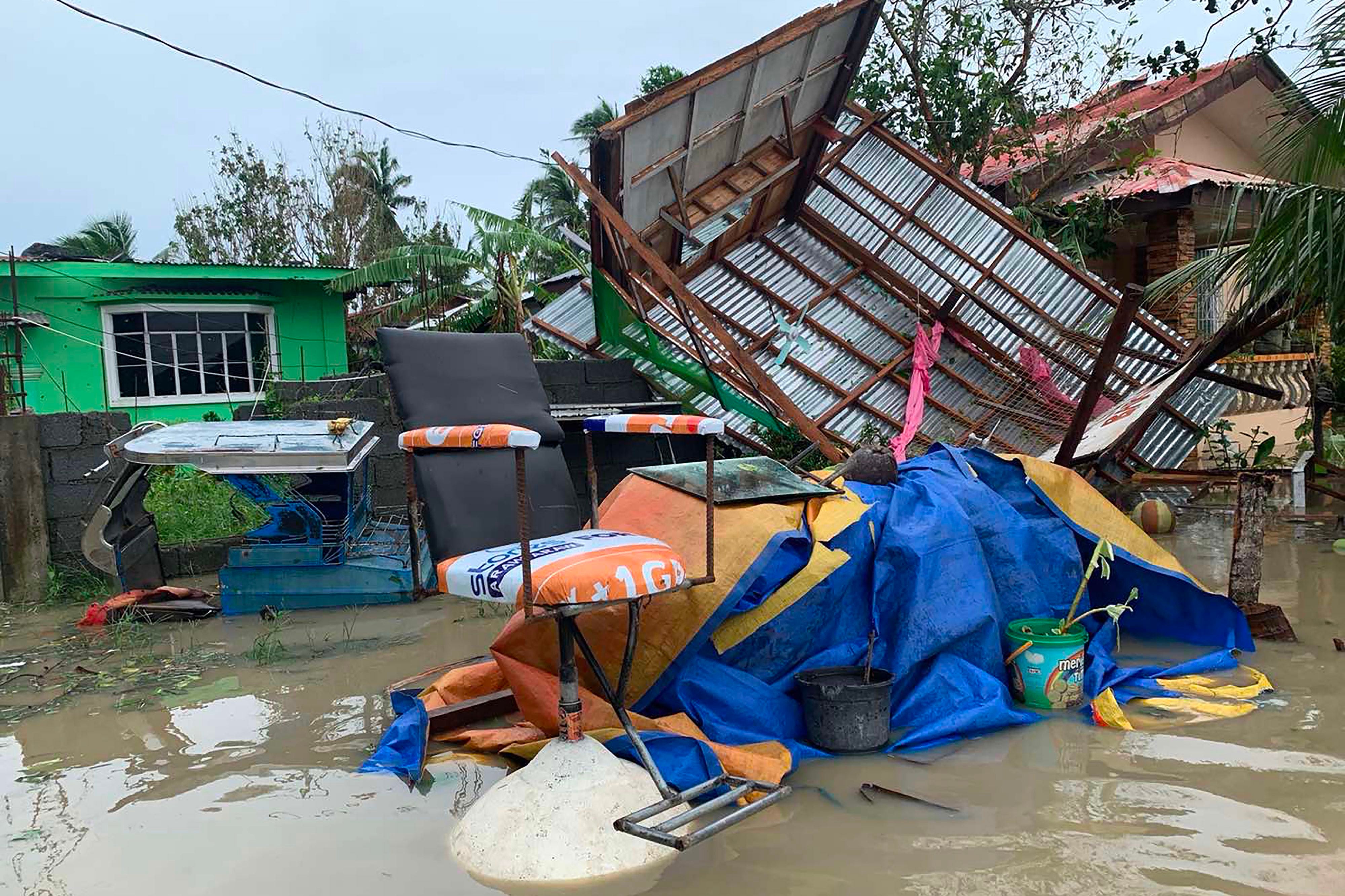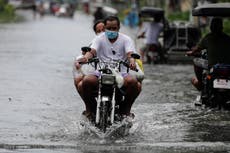Typhoon Molave: Vietnam ready to evacuate 1.3m as a dozen missing in Philippines
Typhoon to make landfall in central Vietnam on Wednesday and bring severe downpours until Saturday

Your support helps us to tell the story
From reproductive rights to climate change to Big Tech, The Independent is on the ground when the story is developing. Whether it's investigating the financials of Elon Musk's pro-Trump PAC or producing our latest documentary, 'The A Word', which shines a light on the American women fighting for reproductive rights, we know how important it is to parse out the facts from the messaging.
At such a critical moment in US history, we need reporters on the ground. Your donation allows us to keep sending journalists to speak to both sides of the story.
The Independent is trusted by Americans across the entire political spectrum. And unlike many other quality news outlets, we choose not to lock Americans out of our reporting and analysis with paywalls. We believe quality journalism should be available to everyone, paid for by those who can afford it.
Your support makes all the difference.Nearly 1.3m people in Vietnam are prepared to evacuate as the country braces for the impact of typhoon Molave as it makes its way from the Philippines.
Whipping up wind speeds of 125 kilometres (77 miles) per hour and gusts of up to 150 kilometres per hour, Typhoon Molave left the main Philippine island of Luzon earlier on Monday.
In its wake, at least a dozen fisherman who were at sea have gone missing off the eastern coast of Luzon. The heavy rain caused seven landslides and flooding in 11 areas in the Philippines, said the country’s disaster monitoring agency.
Thousands of people were forced to flee to safety on Monday as the typhoon ripped the roofs off rural village homes, taking shelter in schools and government buildings converted into evacuation centres.
Molave was the 17th typhoon to hit the Philippines this year and is forecast to make landfall near Da Nang, central Vietnam, on Wednesday.
Early on Monday morning, the storm lay centred around 650 kilometres northeast of Southwest Cay islet, with winds of 135 kilometres per hour, according to the National Centre for Hydro-Meteorological Forecasting (NCHMF).
Typhoon Molave will gradually pick up speed over the next 24 hours as it moves west. It is expected to reach the area of sea between Da Nang and Pau Yen at around 7am on Wednesday, packing winds of 150 kilometres per hour.
It will be the fourth storm to hit Vietnam, which is already struggling after a month of floods and landslides that have left 130 people dead and 20 people missing in the central region.
Prime Minister Nguyen Xuan Phuc issued an urgent warning to provinces and cities in the typhoon’s path. He said: “This is a very strong typhoon that will impact a large area.”
He compared it to Typhoon Damrey, which killed more than 100 people in central Vietnam in 2017. He ordered boats ashore and told security forces to prepare themselves.
“Troops must deploy full force to support people, including mobilising helicopters, tanks and other means of transportation if needed,” said Mr Phuc in a statement.
Mai Van Khiem, director of the NCHMF, warned that the storm may bring around 200mm to 350mm of heavy rain in north and north-central provinces, while central provinces including Nghe An to Quang Binh may see 500mm to 700mm of rain.
The prolonged downpours are expected to last until Saturday, he said. Mountainous areas are at high risk of landslides and flash floods are expected.
Additional reporting by Reuters





Join our commenting forum
Join thought-provoking conversations, follow other Independent readers and see their replies
Comments